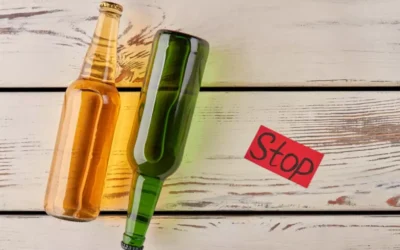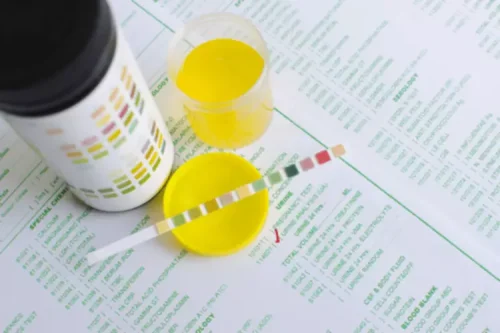If the consequences of high-functioning alcoholism have become overwhelming, and your loved one refuses to seek help for alcohol abuse, it could be time to plan an intervention. An intervention is a planned meeting in which the concerned parties confront the alcoholic about their behavior. Nearly 20% of alcoholics are highly functional and well-educated with good incomes.
Get Professional Help
- Others, like loss of consciousness or slurred speech, may develop after a few drinks.
- People can have a varied reaction and tolerance to alcohol and that doesn’t necessarily mean they are alcoholics.
- The alcoholic is then presented with a plan of care, including a proposal of consequences if they decide to refuse.
- In exploring this evolution, it is important to have open discussions with potential treaters, treatment programs, recovery coaches, life coaches, loved ones, and self-help group members and ask questions.
- American Addiction Centers (AAC) is committed to delivering original, truthful, accurate, unbiased, and medically current information.
Drinking is often covert, and the person may deny they have any issue with their drinking. Treatment programs at The Recovery Village include a full spectrum of alcohol recovery services, from alcohol detox to rehab, aftercare and sober housing. When you’re ready to seek help, or if you have questions about how to live with an alcoholic, we’re here for you. Without treatment, high-functioning alcoholics will not recover.
High-Functioning Alcoholics
The U.S. Bureau of Justice Statistics noted that nearly 60% of violent incidents against a domestic partner or family member were committed under the influence of alcohol. People can have a varied reaction and tolerance to alcohol and that doesn’t necessarily mean they are alcoholics. However, as functioning alcoholics drink more regularly, they develop a higher tolerance. They still want to feel the buzz or numb out from their problems for a while, so they will begin drinking more as their tolerance to alcohol increases. In reality, a high-functioning alcoholic may be experiencing a great deal of stress while they maintain their drinking and all the dressings of a socially accepted lifestyle.
What Is a “Functioning Alcoholic”?
Chronic heavy drinkers can display a functional tolerance to the point they show few obvious signs of intoxication even at high blood alcohol concentrations, which in others would be incapacitating. We’re here 24/7 to help guide you or your loved on through rehab and recovery. Submit your number to receive a call today from a treatment provider.
Alcohol withdrawal can be difficult and, in some cases, life threatening. Depending on how often you drink and how much, you may need support from a healthcare professional if you want to stop drinking. Alcohol use can factor into mental health symptoms that closely resemble those of other mental health conditions.
Drinking alone or being secretive about drinking can be another sign of alcohol use disorder. Drinking alcohol at unconventional times—such as early in the day or at gatherings where nobody else is drinking—is another hallmark of this disease. The way people with alcohol use disorder present in their day-to-day lives alcohol’s effects on the body national institute on alcohol abuse and alcoholism niaaa varies significantly. Media portrayal of people with alcohol use disorder is often stereotypical and does not accurately reflect the complexity of alcoholism as a disease. In this article, learn more about why the term “functioning alcoholic” is outdated and the impact of living with untreated alcohol use disorder.
The test is free, confidential, and no personal information is needed to receive the result. The recovery process from Substance Use Disorders (SUDs) has evolved over time. So often, the recovery process is referred to as a “pathway” or “journey,” which may seem like appropriate terms. However, when examining the idea of a pathway more closely, it implies that there is a singular chosen “path” or “road” that one will follow and adhere to. Historically, the expectation for recovery has been on choosing a particular therapeutic or self-help path and committing to it.
Typically, alcohol withdrawal symptoms happen for heavier drinkers. Alcohol withdrawal can begin within hours of ending a drinking session. As their reliance on alcohol increases, you may begin to notice that your loved one downplays the role alcohol has in their lives addiction intervention in chicago banyan illinois and makes excuses for their actions, especially their drinking. Family members may feel on edge and worried about their loved ones drinking. They may take steps to avoid the person while they are drinking, or they may experience feelings of guilt, shame, or self-blame.
Outpatient programs make it possible for you to get treatment during the day and still live at home. However, certain food groups also have benefits when it comes to helping with the discomfort of withdrawal symptoms and detoxification. The best cure for codependency is a strong, healthy sense of self. Individual therapy, combined with marriage or family counseling, can strengthen your self-esteem and help you build a healthy, sober relationship. They may also withdraw from social situations and find excuses to miss events or optional commitments where drinking is not available or possible.
Finally, be willing to admit that you have a problem and firmly resolve to make a change in your life. Thousands of people have conquered alcoholism and you can do it too. The term “functional alcoholic” is heavily debated in the addiction community, but it’s part of the social vernacular so it’s valuable to discuss the common misconceptions.
If someone is struggling to maintain sobriety or safety, it is crucial that they are encouraged to return to a more structured pathway in order to stabilize and then reassess their needs. In the past, there were fewer self-help and treatment program options and less access to resources. The landscape has changed post-pandemic, and innovations in the self-help and treatment space, as well as many virtual options, have increased access to care.
All experts agree that when talking to your loved one, it’s best to be patient and compassionate. Another major deterrent for some people may be chemical dependence. According to Conroy, it may be easy to get caught in denial with AUD if you subconsciously feel something is wrong with you at your core. It also might mean admitting that they don’t have it all together, and their exterior (and interior) world is crumbling.
Sometimes, a person’s personality can influence their tendency for denial. Certain traits, such as independence and perfectionism, can add to a person’s hesitancy or reticence to seek help, says Grawert. Even if you are aware that your drinking has become a problem, can alcohol make your hot flashes feel worse during menopause it’s common to worry about what others might think. In a 2015 study, almost 29% of participants didn’t seek treatment due to stigma or shame. There are empathetic, actionable ways to support someone with an alcohol use disorder (AUD) who may be stuck in denial.
Left unmanaged, compulsive drinking behaviors can get progressively worse, with their negative impact on your life becoming ever more apparent. Alcoholism can take a devastating toll on a person’s physical health, emotional well-being, personal relationships and professional life. However, many alcoholics manage to function effectively, holding down jobs and maintaining households. A high-functioning alcoholic may hide their alcohol abuse for years without suffering any major losses. Under the surface, this form of alcoholism can cause severe psychological and emotional damage to the alcoholic and also their loved ones.. Alcoholism affects everyone in a household — not just the individual who drinks.














